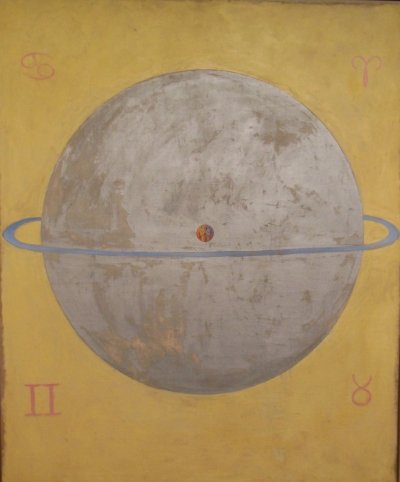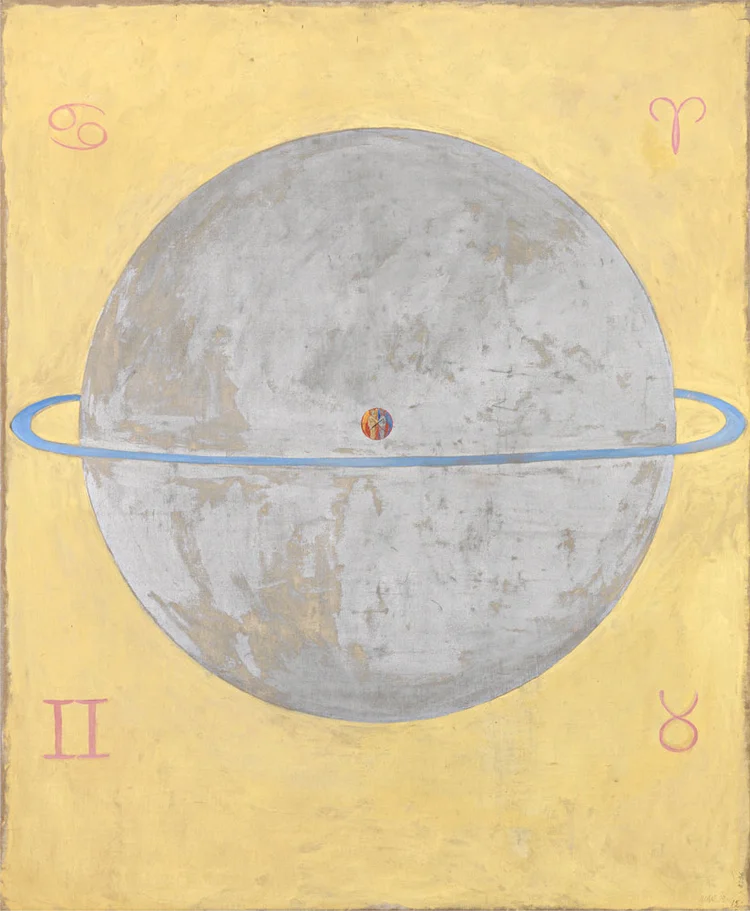André Breton (1896-1966) was a French writer and poet and is best known as one of the founders and leaders of the Surrealist movement and a leading exponent of Dadaism, a pioneer in the early- twentieth century anti-rationalist movements in art.
While Surrealism’s debt to psychoanalysis is widely acknowledged, its debt to Western esoteric tradition has been often hinted at but rarely studied. In the essentially conservative world of art-criticism such interests were often considered odd. The interest of other early twentieth-century artists specifically in Theosophy (Wasilly Kandinsky, Piet Mondrian, Hilma af Klint) and astrology (Gustav Holst and W.B. Yeats) were noted but rather played down.
Andre Breton’s lifelong fascination with astrology is virtually unknown. An interview with Breton on astrology conducted by Jean Carteret and Roger Knare in 1954 gives us a clearer picture.
The interview (part I)
Q: Do you see any value in astrology?
AB: I see astrology as a lady, statuesque, utterly beautiful, and from such a distant realm that she cannot fail to enthral me. In purely physical terms, her attire alone is incomparable. But beyond the realm of the visible, astrology seems to me to contain one of the highest secrets in the world. It's a pity that today - at least in the popular understanding - it's a prostitute who sits on the throne in her place.
Q: Do you think the study of astrology can develop in man a greater awareness of self and of the world?
AB: Definitely. I'd even say that through astrology, two areas of knowledge can be united - knowledge of self and knowledge of the world.
Q: Is astrology solely a man-made creation or is it a formulation of the universe, experienced by man?
AB: Because it is exactly that - a brilliant formulation of relationships between man and the universe, this doesn't create a problem for me. Apart from foolish vanity on his part, man really ought to know that he does not 'create', that he is simply permitted to reveal a little of what is hidden (and to refrain from covering up again as much or more of what has already been revealed) and to free the latent energies within nature. Whether a person devotes themselves to the discovery of Neptune or to that of penicillin, both seem to me to be fulfilling their part in the process of unveiling what is hidden.
Q: Could astrology be considered as an objective way of developing man's poetic sensibilities?
AB: As long as astrologers actually go out there and scrutinise the night sky, let themselves be soaked through by the celestial emanations and then bring this brightness back to the darkness of human existence then yes, all the poetic abilities will play their part. Since the appearance of ephemerides - so practical and - even better, don't you think, within everyone's reach - I think the poetic qualities will undoubtedly play their part.
(to be continued)
Andre Breton (1896-1966)


